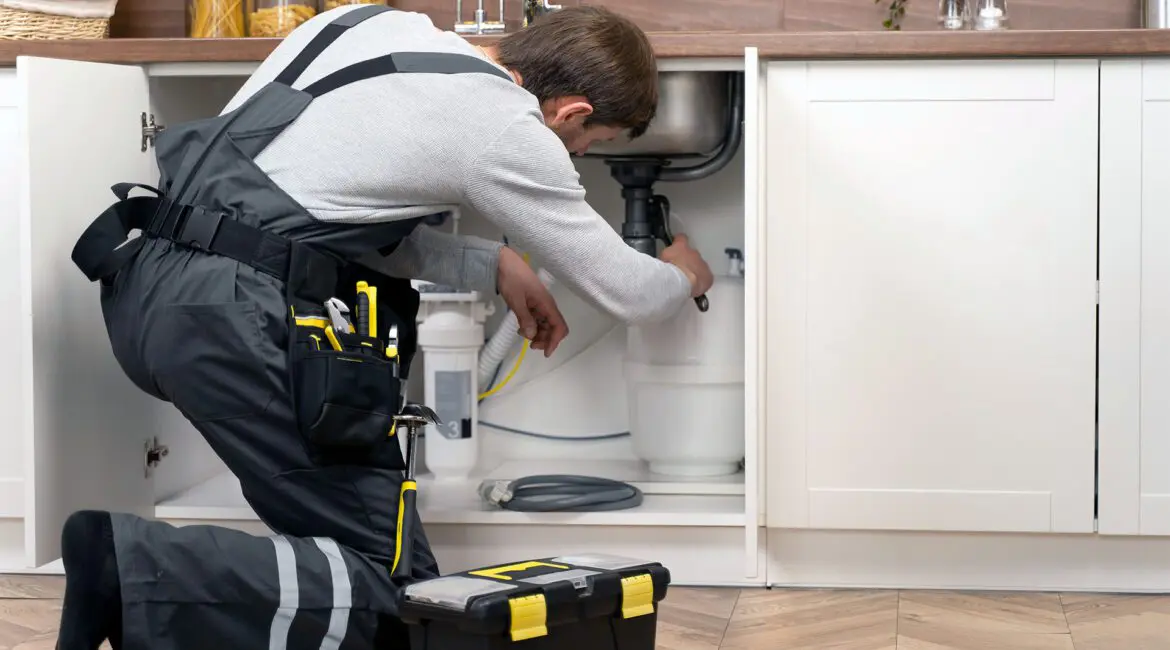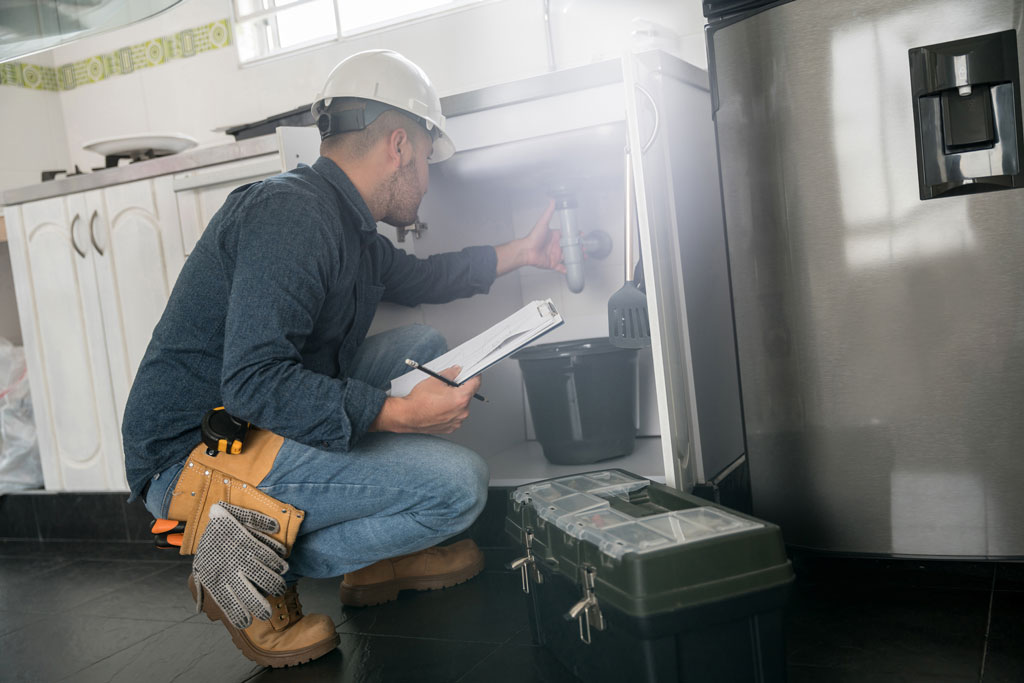Managing Emergency Plumbing Issues: Quick Solutions Until Expert Help Arrives
Managing Emergency Plumbing Issues: Quick Solutions Until Expert Help Arrives
Blog Article
On this page further down you can locate a lot of extremely good insight about What to Do During a Plumbing Emergency.

Plumbing emergencies can strike at any time, creating stress and possible damages to your home. Whether it's a ruptured pipeline, a stopped up drain, or a leaking faucet, knowing how to manage the situation until a professional plumbing professional gets here can conserve you from additional problems. This short article provides essential emergency pipes ideas to assist you reduce damage and regain control throughout a pipes dilemma.
Turn Off the Water Supply
The first step in any type of plumbing emergency is to shut down the water. For local issues, such as a dripping tap or bathroom, turn off the shutoff near the component. In the case of a significant leakage or burst pipe, situate your home's primary water shut-off valve and transform it off promptly. Understanding the location of these shutoffs in advance can save beneficial time during an emergency situation.
Turn off Your Water Heater
In particular emergency situations, such as a burst pipeline, it's a good idea to shut off your hot water heater. This avoids overheating or damages to the unit when water quits streaming. Turn off the power supply to the hot water heater (electric or gas) and allow it cool off to stay clear of prospective hazards.
Momentarily Stop a Ruptured Pipe
A ruptured pipe can lead to considerable water damage in mins. To mitigate the concern:
Call an expert plumber promptly to address the issue permanently.
Have an Emergency Pipes Kit
Prepare a fundamental pipes emergency package to handle minor concerns efficiently. Your set should include:
Having these devices available can make a considerable distinction in your ability to handle emergency situations.
Unclog Drains Safely.
A stopped up drainpipe can be an aggravating and untidy problem. Below's how to tackle it:.
If these approaches don't work, avoid using extreme force, as it may aggravate the clog.
Take Care Of Overflowing Toilets.
An overruning commode can create immediate chaos. Here's what you should do:.
Address Tiny Leakages with Momentary Repairs.
Small leaks can quickly come to be substantial troubles if left untreated. Utilize these short-term fixes until specialist assistance shows up:.
While these solutions aren't irreversible, they can assist lessen water loss and damage.
Handle Frozen Piping Meticulously.
In cooler climates, icy pipelines are a common emergency situation. If you presume an icy pipe:.
Know When to Call an Expert.
While quick fixes can aid briefly, particular plumbing problems require instant professional interest. Call a plumbing if:.
Promptly speaking to an expert makes certain the issue is fixed correctly and avoids more complications.
Stop More Damage.
Taking fast activity to reduce damages can conserve you time and money over time. Right here's how:.
Conclusion.
Plumbing emergency situations can be frustrating, but with the right understanding and devices, you can take care of the scenario effectively until help shows up. By shutting off the water, resolving small leaks, and using temporary repairs, you can reduce damages and maintain your home safe. Keep in mind, these pointers are short-lived solutions; always speak with a qualified plumbing to deal with the root cause of the problem. Preparation and quick thinking are your finest allies in any type of pipes emergency.
8 Helpful Tips for Managing Plumbing Emergencies at Home
If your plumbing system hasn’t failed once, wait for it because almost everyone has a story to tell. Sometimes, it could be simple emergencies such as a leaking pipe, a blocked cistern, or even a big burst pipe. In situations like this, you need to have some handy tips to save you some money and from possible damages.
Take care of minor issues early.
Sometimes, you could have avoided an emergency by taking proactive measures while it was still early. Some major plumbing emergencies can be a result of an ignored minor issue. We recommend that you have items like plumbing tapes and other related items. A plumbing tape can allow you to manage minor leaks before the plumber arrives.
Cut off the water supply.
This tip is essential in almost any type of leakage problem. For problems like minor leakages in the toilet or kitchen, turn off the supply that takes water to the affected pipes. If the leakage is a major pipe, you must shut off the supply valve to the entire building. This will help you avoid flooding your home and neighbors if you share a flat.
Know your plumbing system
Folks typically move into a new apartment without understanding the water supply around the building. This can prove disastrous if a water emergency arises and the plumber is far away. The previous tip will prove useless if you don’t practice this one. More importantly, know where your water shut-off valve is located – you’ll need that knowledge to prevent potential home floods.
Have some common handy tools
There are lots of plumbing emergencies that you can handle without hiring a plumber. That’s why you must keep some tools available always. Some tools that you can use to fix simple plumbing emergencies easily include plumbing tapes, screwdrivers, thread seal tapes, plungers, pliers, tape measures, and rubber gloves.
Insulate your pipes from cold
You’ll save yourself from many plumbing expenses if you protect your water pipes from the cold. This is because of the harmful effects that cold weather can have on your pipes. During winter, your pipes can burst from being overly expected to freezing temperatures. So, make sure insulators are there to keep the pipes working correctly.
Avoid practices that will clog your toilet.
Many people indulge in practices that can damage the plumbing system of the entire building. One of these is when they use their toilet to dispose-off garbage. They flush all kinds of things, such as paper towels, bandages, hairs, female sanitary products, etc., down the toilet. This will block your toilet in the long run, incurring unnecessary expenditures. Dump such waste in the trash instead.
Check your dials regularly.
Sometimes, there could be leakages in your home without noticing them in time. So, constantly monitor your water meter dial. If the dial is reading when there is nobody using water, this is an indicator that there is leaking. Check for leaks immediately. Call a plumber as soon as possible if you can’t find any.
https://www.constructionplacements.com/8-helpful-tips-for-managing-plumbing-emergencies-at-home/

Hopefully you enjoyed our article about Expert Tips for Managing a Plumbing Emergency Until Help Arrives. Many thanks for finding the time to browse our piece of content. Sharing is nice. Helping others is fun. We value your readership.
Schedule A Service Call Report this page